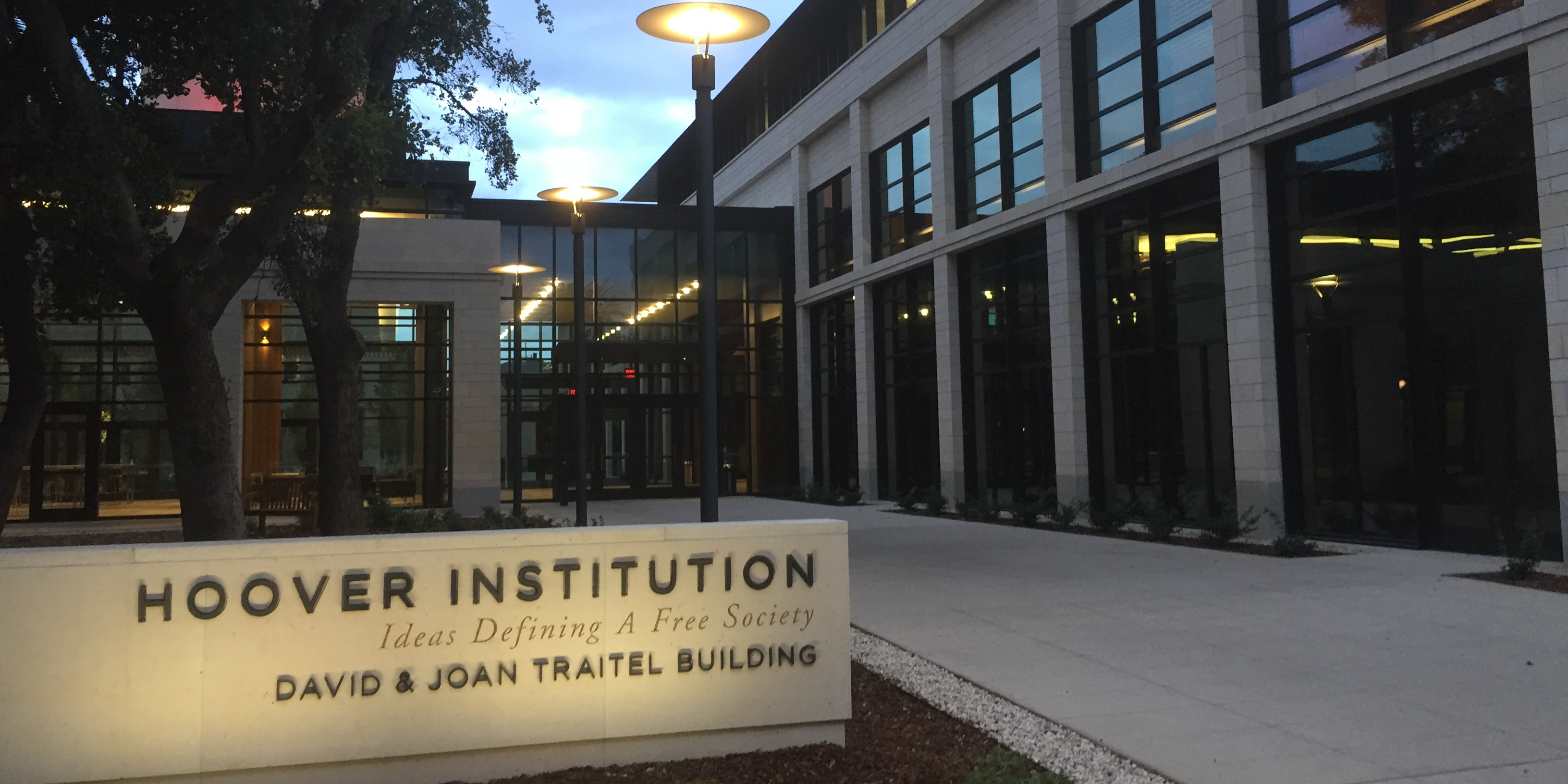Reflecting on the rise of three Eurasian superpowers — China, Russia and Iran — three Hoover Institution faculty spoke at the Institution’s Traitel Auditorium on the need for national unity in ensuring the promotion of American values and interests over the next decades. The event featured speakers Gary Roughhead, Abbas Milani and Michael McFaul and was part of a broader Hoover lecture series intended to promote values of American democracy, private enterprise and political freedom as it celebrates the centennial of its founding.
In front of a packed auditorium, Roughhead, Milani and McFaul sought to build a cohesive overview of the national-security threats posed by the three rising global powers, touching on themes of technological and military development, nuclear weapons, misinformation campaigns and regional spheres of influence.
“Iran, China and Russia are all rising former empires and civilizations that are all in one way or another attacking the ideas that define a free society, and we’ve got to get smarter about how we push back,” McFaul said of the influence of the three rising powers.
McFaul, who served as former U.S. Ambassador to Russia under the Obama administration, emphasized that he did not believe the U.S. was headed into another Cold War with Russia. But, he maintained that Putin is waging “ideological struggle against the West and liberalism,” seeking to break up NATO and the European Union while developing dangerous new military technologies.
While dismissing the existence of a strong Russia-China alliance, Roughhead identified instances of cooperation between the two nations in Eurasia that should concern the United States. The former U.S. Navy officer and 29th Chief of Naval Operations highlighted China’s unprecedented rise as a maritime power and its intensive investment in human capital as primary threats, mentioning that China now produced more computer scientists and electrical engineers than the United States.
Milani’s take on the Iranian threat characterized the country’s cultivation of relationships with China and Russia as a developing “brotherhood of authoritarianism.” While mentioning the unique threats of state-sponsored radical Islam and radical sectarianism enveloping the Middle East, Milani also urged the audience to pay attention to the evolving geopolitical dynamics in the Persian Gulf.
“If we are in a Cold War with Russia, if the world is on a collision course of some sorts with China, how China and Russia position themselves in the Persian Gulf, how they position themselves in Iran is going to have a very important and profound impact and not many people are paying enough attention to this,” he added.
All three panelists made pleas for increased national unity and political awareness of the threat posed by China, Russia and Iran.
“We’ve got to start with us — we need to get our own house in order,” McFaul said. “We need to have a sense that this is a common mission, American national security and American prosperity, and if we continue to fight over ourselves and between ourselves, we will lose the struggle against these three countries we are talking about.”
“I would start by giving everyone a map,” Roughhead quipped, adding that a proactive and shared policy of research and innovation was necessary for the U.S. to maintain its global leadership.
As the event opened up to questions, some audience members were nostalgic for former years of American national unity, asking speakers how such unity could be achieved once again. Rousing calls for renewed national initiative in defending and promoting American values and democracy from the speakers at times elicited applause from audience members, who seemed largely sympathetic to that sentiment.
While almost all the seats were filled at the Traitel Auditorium, noticeably missing from the audience were Stanford students.
“I was surprised at the attendance for a Week 1 event, but I was also disappointed if only in the lack of young professional turnout, because we’re the future and we should really see more young people here,” said Kyle Kinnie ’19, who now works at Hoover.
First-year MBA student Francisco Enriquez, who attended the event with three classmates, said that though he was American, he recognized that the event could feel “American-centric” for international audience members.
Nonetheless, he appreciated the broader importance of broader civic participation in American foreign policy debates.
“I think everyone should engage in the conversation of ideas. I think everyone should have engaging critical thought as it relates our place our world, as it relates to our country, and as it relates to the future of our world,” he said.
The next event in the series is titled “Hoover’s One Hundred Years of War, Revolution and Peace” and will include historians Victor Davis Hanson and Niall Ferguson as speakers. It will take place on Nov. 4.
Contact Berber Jin at [email protected]
